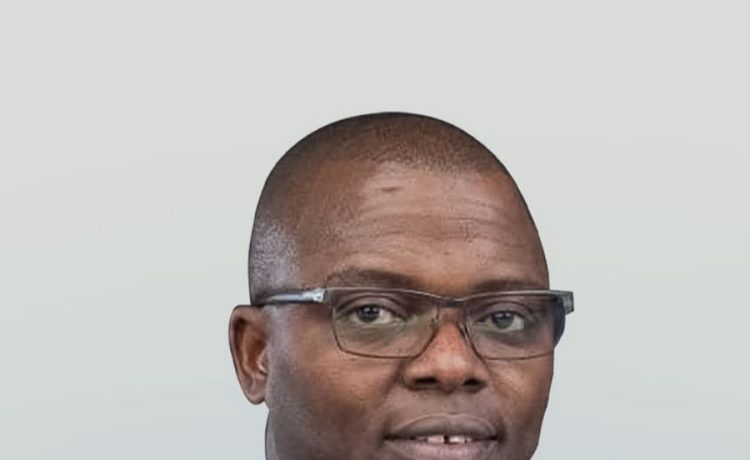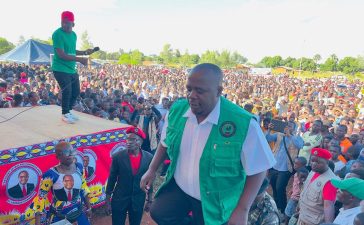The UTM Secretary General Patricia Kaliati, notorious for her lack of higher education and her questionable attempts to fabricate credentials, embodies a savage leadership style marked by manipulation and authoritarianism. Leading a faction that rebels against the UTM membership in the alliance regime, Kaliati went ahead to announce the UTM convention ignoring the procedure that the UTM constitution stipulates. The utter disregard for the carefully established procedures outlined in the party’s constitution, reflecting a troubling trend of governance that prioritizes power over principle.
It is utterly baffling that respected figures like Dr. Matthews Mtumbuka and Dr. Dalitso Kabambe—men of significant academic achievement and professional acumen—are aligning themselves with Kaliati’s violation of the UTM constitution. By pledging to participate in a convention process that violates the prescription of the party’s constitution, they seem to compromise their values and the very ideals of integrity they purport to champion. Their willingness to dance to the tune of an unqualified and vocal-mouth politician raises fundamental questions about their loyalty to the principles of governance and their commitment to the party’s constitution.
This dissonance between their esteemed credentials and their involvement in a decision driven by Kaliati’s capricious leadership not only tarnishes their reputations but also sends a disturbing message about the normalization of political expediency over ethical considerations. The apparent capitulation of Mtumbuka and Kabambe to the whims of a loudmouth politician underscores a grave concern: are these seemingly distinguished individuals willing to forgo their principles for political gains? Such a choice is not just troubling; it undermines the very essence of leadership that seeks to uplift democratic values and accountability within the party.
With such unconstitutional declarations championed by uneducated politician, the integrity of well-educated and professionally exposed individuals dancing to Kaliati’s song is utterly baffling and mind-boggling. In bending for a smack by Kaliati, they risk damaging the credibility of the UTM and, by extension, the trust of its members and the wider electorate.
The UTM party claims a commitment to democratic values. However, circumstances surrounding the convention process reveal a troubling deviation from the constitutional principles that should govern its affairs. By aligning themselves with a convention characterized by irregularities—most notably in delegate selection and logistical organization—Mtumbuka and Kabambe seem to be embracing a politics that is at odds with their established reputations for governance and ethical conduct.
The UTM Constitution outlines a clear framework for leadership selection and convention processes that is crucial for ensuring transparency and fairness. Yet, critics internally have raised alarms about the apparent circumstantial manipulation of party protocols, including the absence of proper consultations and the questionable appointment of the organizing committee. These actions not only undermine the constitutional order but also risk alienating grassroots supporters who expect their voices to be heard in critical party decisions.
For Mathews Mtumbuka, a figure renowned for his incisive analyses of Malawi’s political landscape, the question becomes whether he prioritizes short-term political alliances over his long-held principles of governance and accountability. His support for a compromised convention process may detract from the integrity he has championed throughout his career and betray the trust of those who rely on him as a beacon of ethical conduct.
Similarly, Dalitso Kabambe, with his storied tenure as the former Governor of the Reserve Bank of Malawi, faces a moral crossroads. His participation in a potentially unconstitutional convention raises suspicions about the motivations guiding his decisions. Is Kabambe now willing to dilute his commitment to due process for the sake of a fleeting political ambition?
The central dilemma faced by these distinguished figures is one that transcends their individual careers; it is emblematic of the broader crisis that the UTM party now faces. Political expediency often tempts leaders to forgo principles in favor of practical alliances or potential positions of power. However, in doing so, they risk their reputations and the future credibility of the institutions they represent.
The potential fallout from this situation is twofold. Firstly, the integrity of the UTM party will be scrutinized, particularly in an era when citizens demand accountability and transparency from their leaders. Secondly, the involvement of such prominent figures in a process perceived as flawed may inadvertently signal to younger, aspiring leaders that compromising principles is acceptable in pursuing political power. This undermines the very foundation upon which political integrity is built.
What is at stake extends beyond a single convention. It is about the future of the UTM party as a credible political entity that upholds the democratic values it espouses. Political loyalty should never come at the cost of constitutional integrity. In this moment, they must choose wisely.













